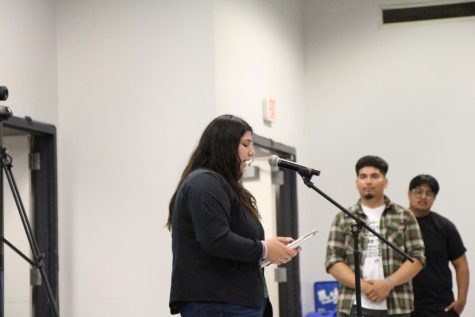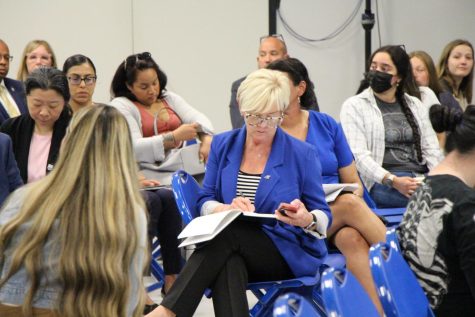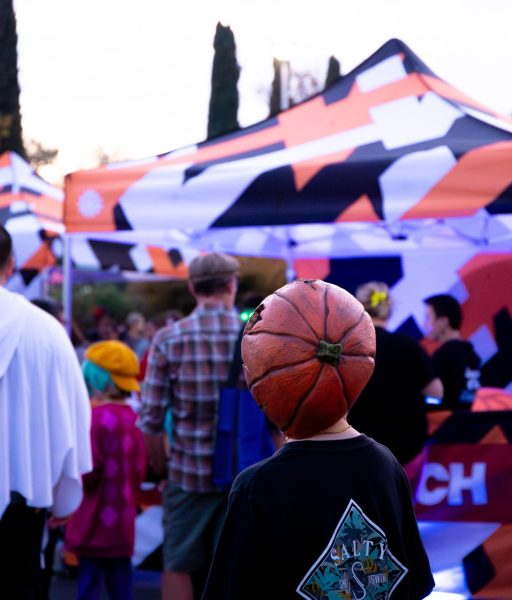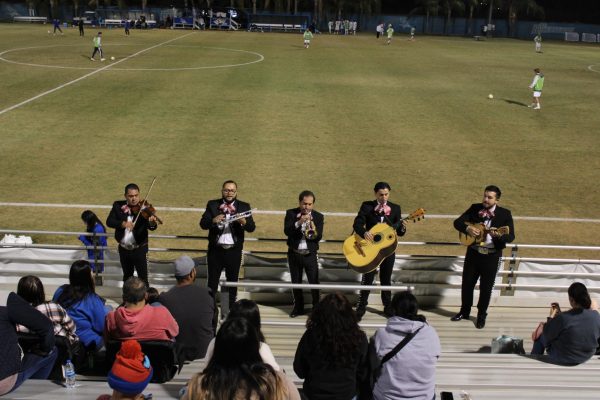Ecosystem listening session ignites passion within students
April 20, 2023

Photo by Jocelynn Landon / The Runner
Students of California State University, Bakersfield came together at the first ecosystem listening session to voice their opinions on how the actions of Facilities is potentially harming the urban ecosystem of the university.
CSUB is one of the few universities in the world that has an endangered species of any kind living on their campus. With Facilities fumigating holes that they believe to be burrowing-rodent dwellings, the concern arises whether this method is foolproof, guaranteeing no kit foxes get harmed during the process.
Although the ground burrowing-rodent population is what led CSUB to plan these listening sessions after hearing the concerned discussions happening on campus, students are calling to switch the narrative towards the endangered kit foxes that preside on campus.
On April 10, students gathered in the Student Union Multipurpose Room from 12:30 p.m. to 1:30 p.m. to express their thoughts on the ecosystem-related issues that are taking place on campus. This first listening session was just for CSUB students, but staff and faculty were welcome to attend the meeting and listen to what students had to say.
A listening committee was formed of members of the CSUB community to listen to what students had to say and help come to a decision on matters at hand.
At the start of the session, Dr. Thomas Wallace expressed how happy he was with the student turnout, showing just how many students were willing to fight for what they believe in.
“Today we’re not here to talk about squirrels. We’re here to address how the fumigation of these boroughs is putting the kit foxes at further risk of extinction,” said Sarah Alame, a graduate student studying biology.
The hour-long session bounced back and forth between in-person students and those that joined the session via Zoom.
“Kit foxes can occupy up to 13 different burrows in a year. That means every month the location of these dens or the location of these kit foxes can change. Just because we have identified a den previously does not mean that it’s going to be inhabited or not. What I’m trying to say is that we don’t know where these dens are. We don’t know where these kit foxes are,” said Alame.
Another point that students brought up during the listening session was how Facilities did not notify anyone on campus of their actions. Burrowing-rodent fumigation came to light after numerous sightings had occurred across campus.
Various students at this listening session expressed how they felt as if Facilities was hiding their actions from the campus community by not being transparent.

Photo by Jocelynn Landon / The Runner
“Hedges has mentioned that the fumigation process has been occurring for over more than a decade but has failed to notify the university’s community during this time,” said Jasmine Rodriguez, a senior double majoring in biochemistry and criminal justice.
As the session went on, some students noticed that some of the listening committee members in attendance were on their phones.
“I would just like to say that if you are one of the names that were mentioned, a part of the listening committee, I feel like you should not be on your phones and you should be listening to what we have to say,” said Aurora Camacho, a senior biology major.
“The longer you make us wait for answers the angrier we’re going to get, and the angrier we get the more outreach we’re going to do. You can’t ignore us forever,” said Alame, urging the committee to take what the students said seriously.
Students want change to happen moving forward. After getting blindsided by the actions of Facilities, many students distrust them.
According to Yasmin Marcelo, director of Arts and Humanities for Associated Students Inc., moving forward toward change means leaving the past behind. No information has been released as to how long the listening committee will take to come up with an alternative route for further action.
This first listening session gave students an opportunity to express their concerns as a united front in regard to the delicate urban ecosystem that exists on campus.






